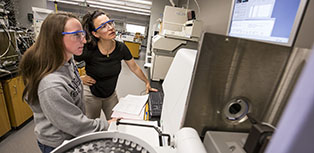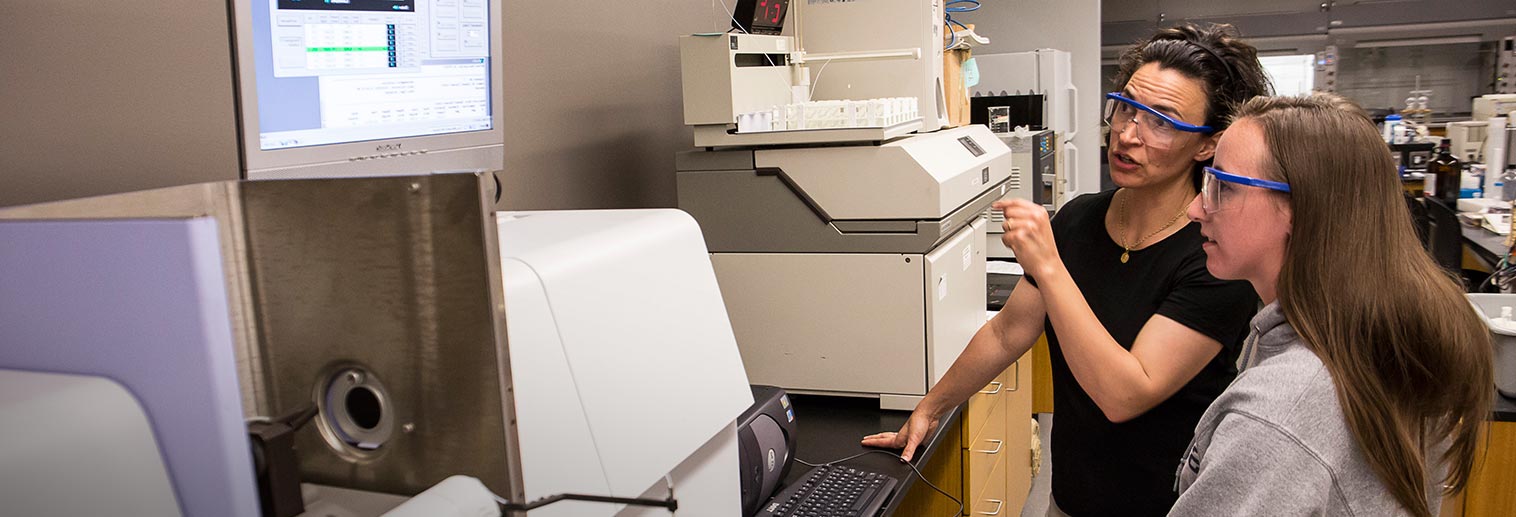Biochemistry
All of biology is, at some level, chemical. Over the past 50 years, since the first description of the structure of the DNA molecule in 1953, our understanding of the chemistry underlying biological phenomena has grown at an incredible pace, and biologists spend a lot of their efforts in this arena. The increasing sophistication of this understanding has made questions in biology both more tractable and more interesting to scientists who are traditionally considered chemists.
Though there is a need for both biology and chemistry knowledge, biochemistry has long been a mature, independent discipline. The questions it explores, show the wide-range it can uncover that the best way to study them today is to consciously take on a major in biochemistry, rather than try to adapt a major in chemistry or biology to your interests. Biochemists are active in all sectors of scientific life, from academic, corporate, and government research labs to newspapers and magazines to hospitals to law offices to local, state, and federal agencies. They are working to understand and combat human diseases, develop new and better pharmaceuticals, pesticides, and herbicides, struggle with patent issues in the courts, and advise politicians and the public on the science behind many of today's major issues.
Biochemistry is a challenging field, with many difficult questions asked and many satisfactions to be had. Students who complete an undergraduate degree in Biochemistry prepare themselves to go on into whatever field they find most fascinating and to tackle tough problems and to succeed in solving them.
SOAR Spotlight

Taylor Blake '16 performed experiments that helped her gain insights on the mechanism of how metal-based anticancer drugs work, allowing for the development better therapies.

